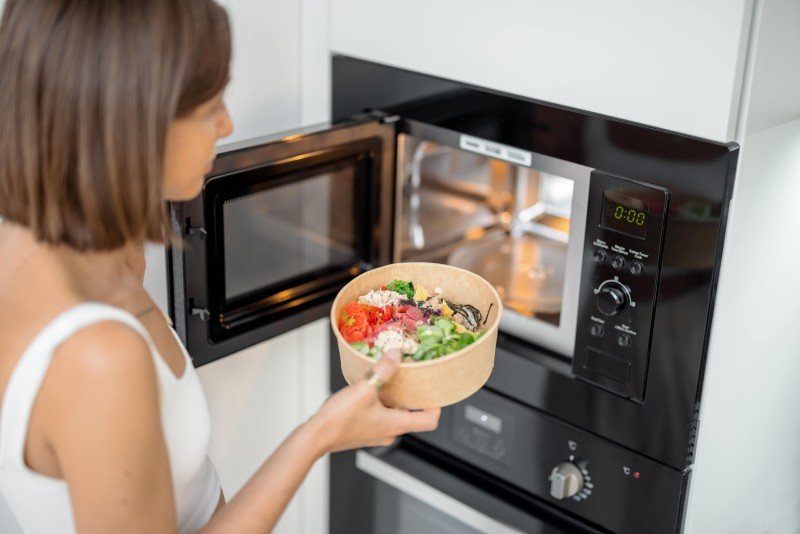The Comprehensive Guide to Sales Ovens: Understanding Their Importance, Types, and Best Practices
Sales ovens, a classification of commercial cooking devices, are essential gamers in the culinary and foodservice industry. These devices, developed to prepare food in large amounts efficiently, are vital in restaurants, catering services, and other food facilities. This post looks into the significance of sales ovens, their types, and best practices for picking and using them successfully.
What Are Sales Ovens?
Sales ovens, broadly specified, are cooking devices utilized mainly in business kitchen areas to prepare, bake, or heat different food products at scale. Their style permits them to handle higher volume cooking compared to basic property ovens. Offered Oven Hobs of food service, sales ovens frequently incorporate innovative technologies that promote speed, efficiency, and even cooking.
Value of Sales Ovens in the Food Industry
Sales ovens play a pivotal role in food production for lots of reasons:
- Efficiency: Sales ovens can cook food faster and equally than traditional ovens, allowing chefs to prepare meals in less time.
- Consistency: With accurate temperature level controls, sales ovens make sure that the food is prepared equally whenever, maintaining quality across thousands of servings.
- Flexibility: Many sales ovens can manage different cooking methods including baking, roasting, broiling, and even steaming, making them appropriate for diverse menus.
- Energy Savings: Modern sales ovens are frequently designed to be energy-efficient, decreasing functional expenses for businesses.
Kinds Of Sales Ovens
The market provides a variety of sales ovens, each fit for specific cooking needs and types of food. Here are the most common types:
| Type of Oven | Description | Best For |
|---|---|---|
| Convection Ovens | Utilize a fan to circulate hot air, guaranteeing even cooking. | Baking and roasting items. |
| Combi-Ovens | A mix of convection and steam cooking, supplying versatility in cooking techniques. | Varied menus needing steaming and baking. |
| Conveyor Ovens | Utilize a moving belt to constantly prepare food, suitable for high-volume operations. | Fast food and pizza. |
| Deck Ovens | Feature separate compartments (decks) that can be individually controlled, offering high efficiency. | Craftsmen bread and pastries. |
| Rotisserie Ovens | Developed to gradually roast meat on a spit, providing tender and juicy outcomes. | Roasted meats. |
Picking the Right Sales Oven
Selecting the appropriate sales oven for a particular business needs factor to consider of a number of elements:
- Volume Needs: Assess the volume of food that requires to be prepared. Higher volume implies choosing conveyor or combi-ovens.
- Menu Diversity: Understanding what type of meals will be prepared can assist the choice process. For instance, a pastry shop might need a deck oven, while a diner might take advantage of a stove.
- Area Availability: Measure kitchen area to make sure the ovens fit properly and have needed ventilation.
- Spending plan: Commercial ovens can differ significantly in rate, so develop a spending plan that considers long-lasting functional savings.
- Energy Efficiency: Opt for ovens that have energy scores to keep energy costs workable.
Best Practices for Using Sales Ovens
Effectively operating a sales oven includes more than easy usage. Here are some best practices to bear in mind:
- Regular Maintenance: Schedule regular upkeep to tidy and check the performance of the oven. This ensures durability and effectiveness.
- Preheating: Always preheat the oven to the preferred temperature before positioning food inside for consistent cooking outcomes.
- Make use of Thermometers: For accuracy, use an oven thermometer to guarantee that temperature levels remain constant, specifically for baking.
- Follow Cooking Times: Adhere to advised cooking times based upon the kind of food being prepared. Modifications may be essential for different ovens.
- Avoid Overcrowding: Ensure enough space around food items in the oven to enable proper air blood circulation.
The Future of Sales Ovens
As technology advances, so do the capabilities of sales ovens. Innovations such as smart innovation, energy-efficient designs, and improved safety functions are ending up being more popular. These improvements assure to boost cooking performance while likewise satisfying sustainability objectives.
Frequently Asked Questions about Sales Ovens
Q1: How do I clean my sales oven?
A: Regular cleansing includes removing any food debris, cleaning down surface areas with non-corrosive cleaners, and following specific cleansing suggestions from the producer.
Q2: What's the life expectancy of an industrial oven?
A: Typically, a properly maintained business oven can last anywhere from 10 to 20 years, depending upon usage and upkeep.
Q3: Can sales ovens be used for baking?
A: Yes, many types of sales ovens, especially convection and deck ovens, are specifically developed for baking a range of products.
Q4: Are there energy-efficient alternatives for sales ovens?
A: Yes, a number of producers use energy-efficient models that lower energy intake without sacrificing efficiency.
Q5: How frequently should I conduct maintenance on my sales oven?
A: It's advisable to carry out routine maintenance checks on a monthly basis or quarter, depending upon usage levels. Furthermore, a comprehensive evaluation needs to occur at least every year.
Sales ovens are important in the modern-day culinary landscape. Their ability to prepare big quantities of food efficiently makes them essential for restaurants, catering services, and other food facilities. By understanding the different types, selecting the right oven, and sticking to best practices, food service organizations can optimize their cooking procedures, boost their offerings, and eventually thrill their customers with impressive culinary creations.

